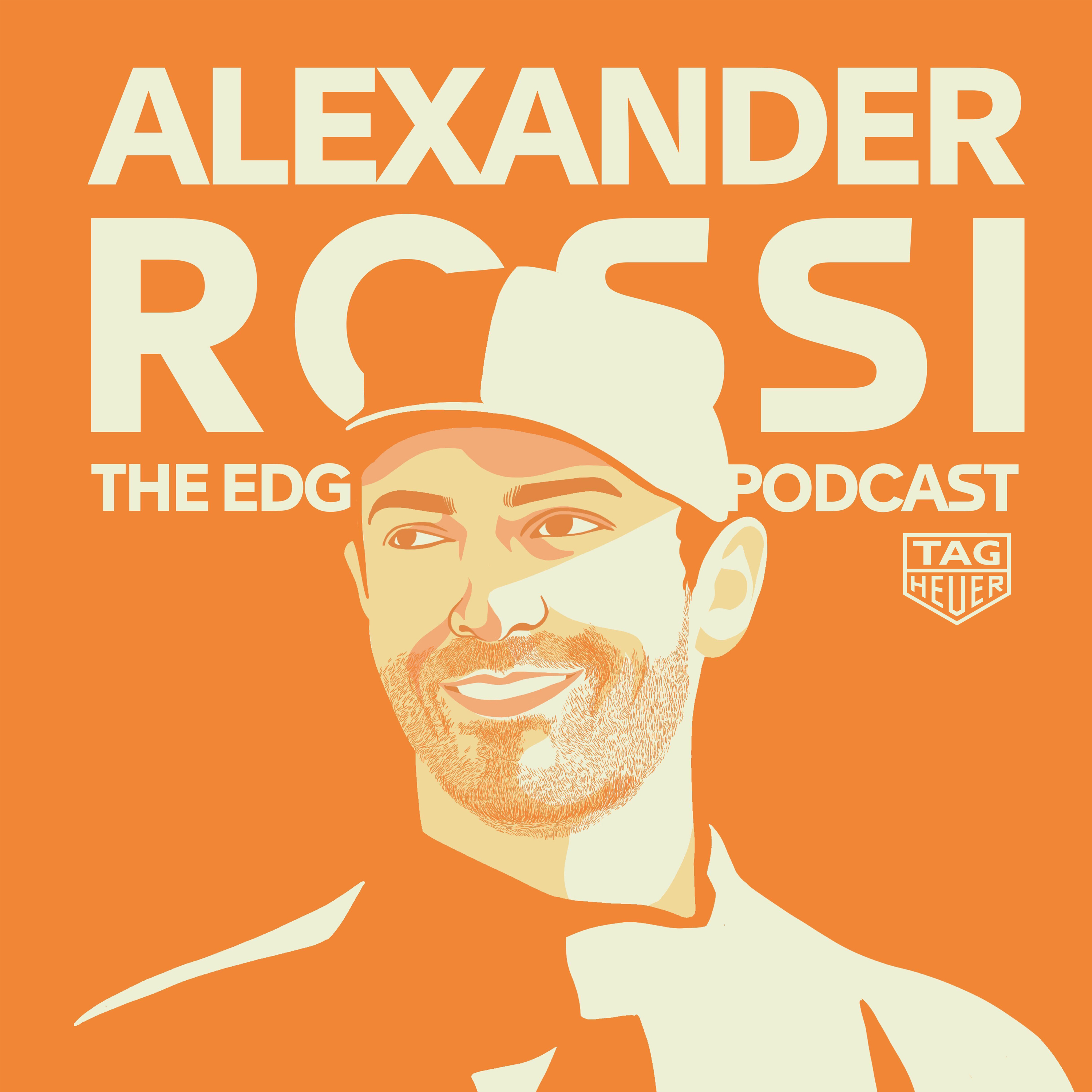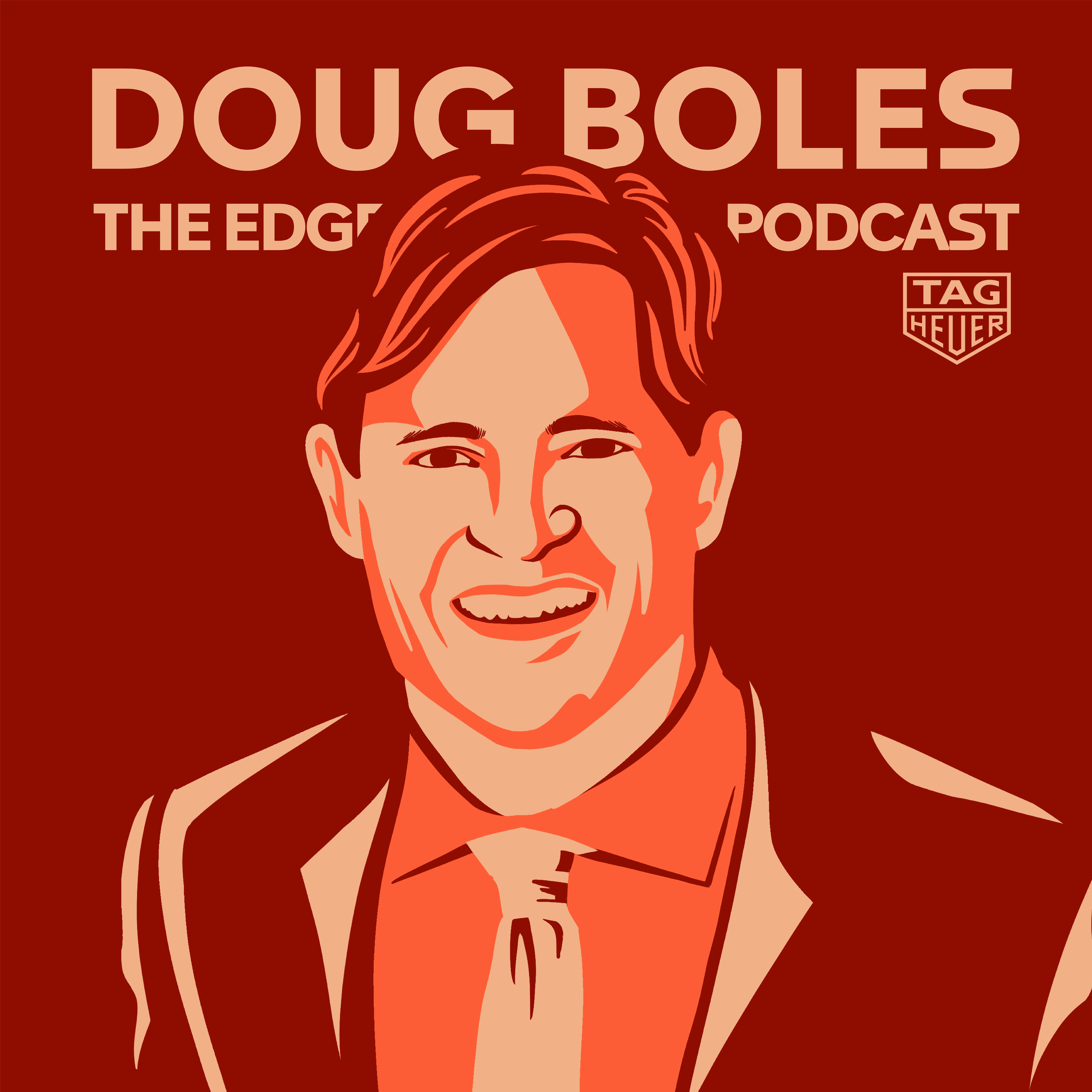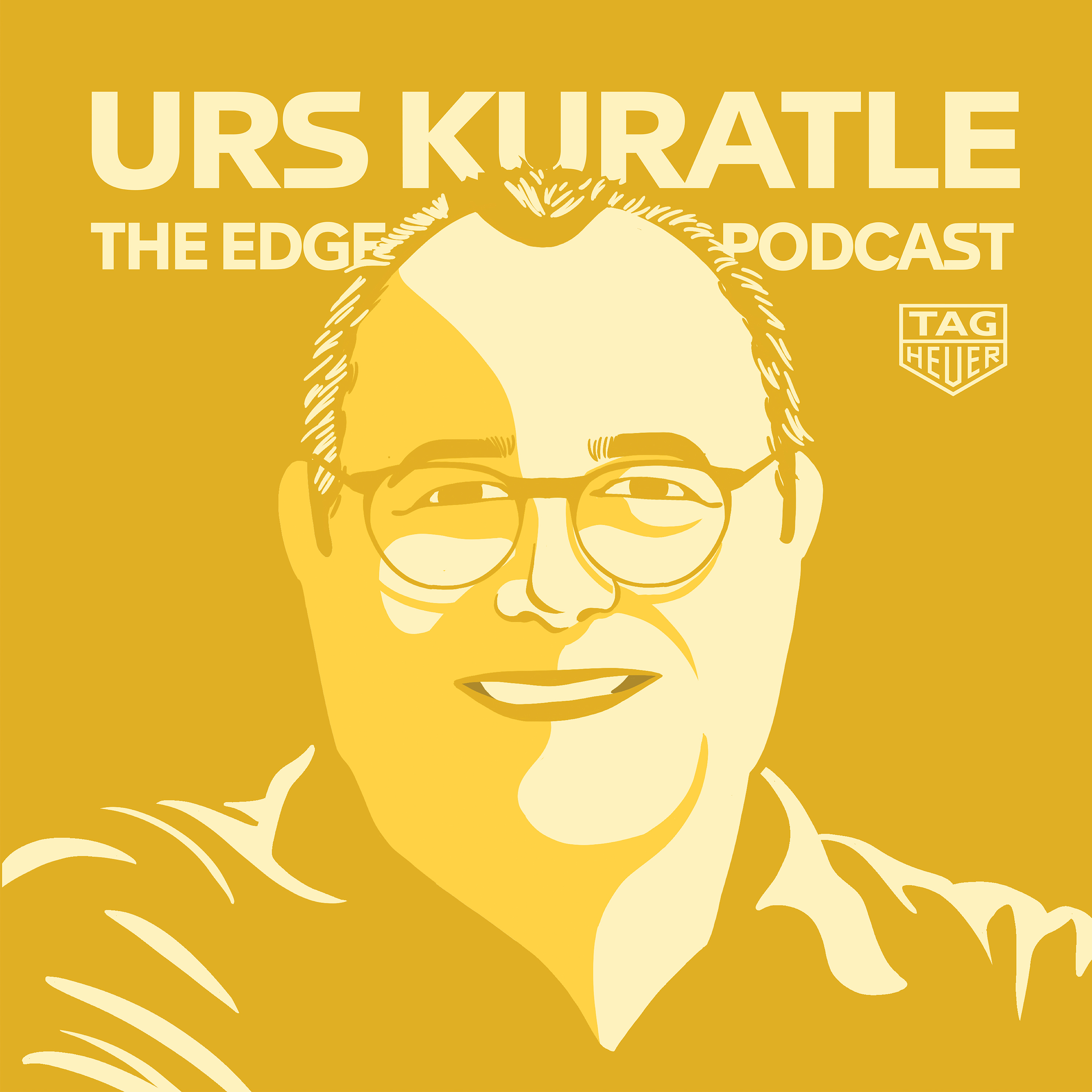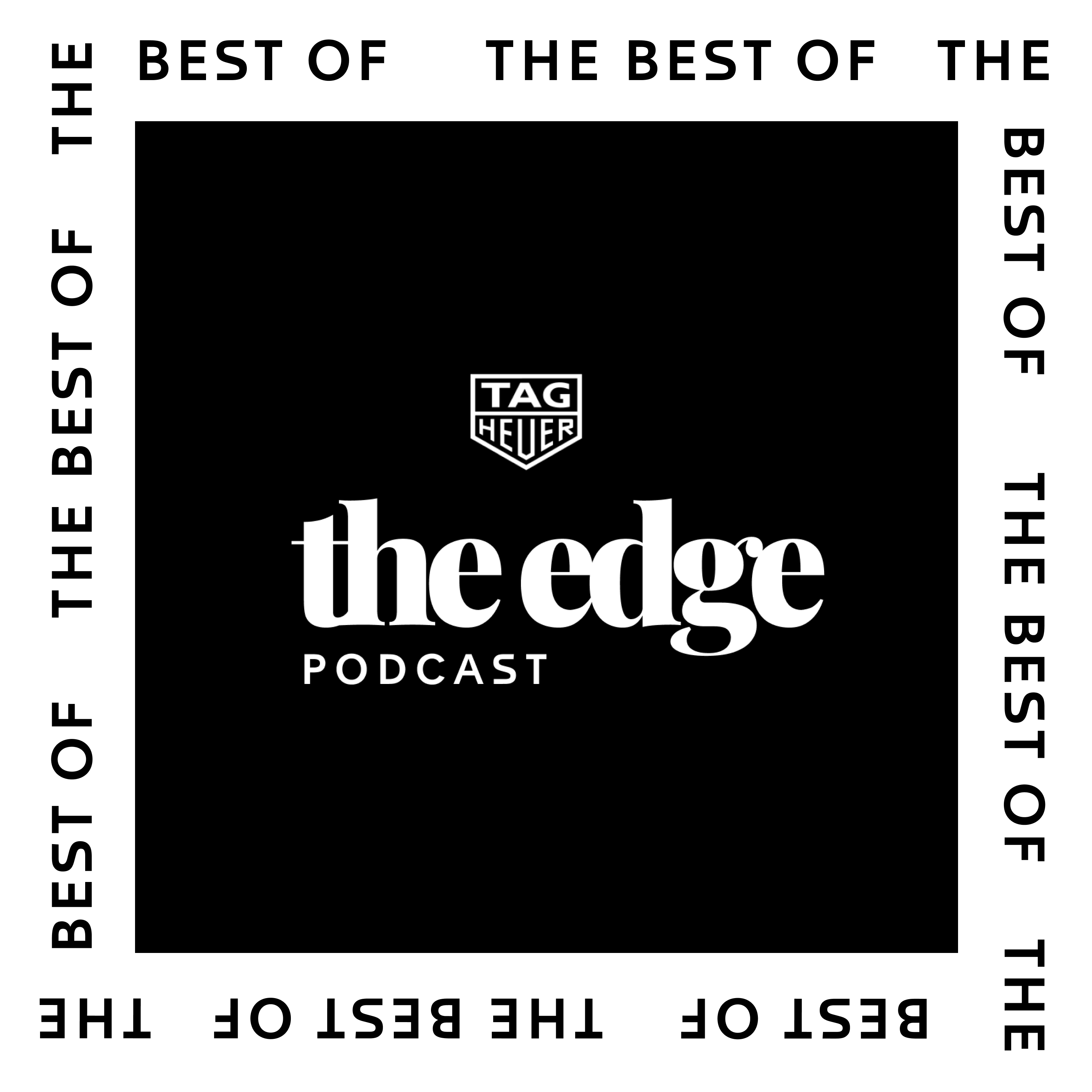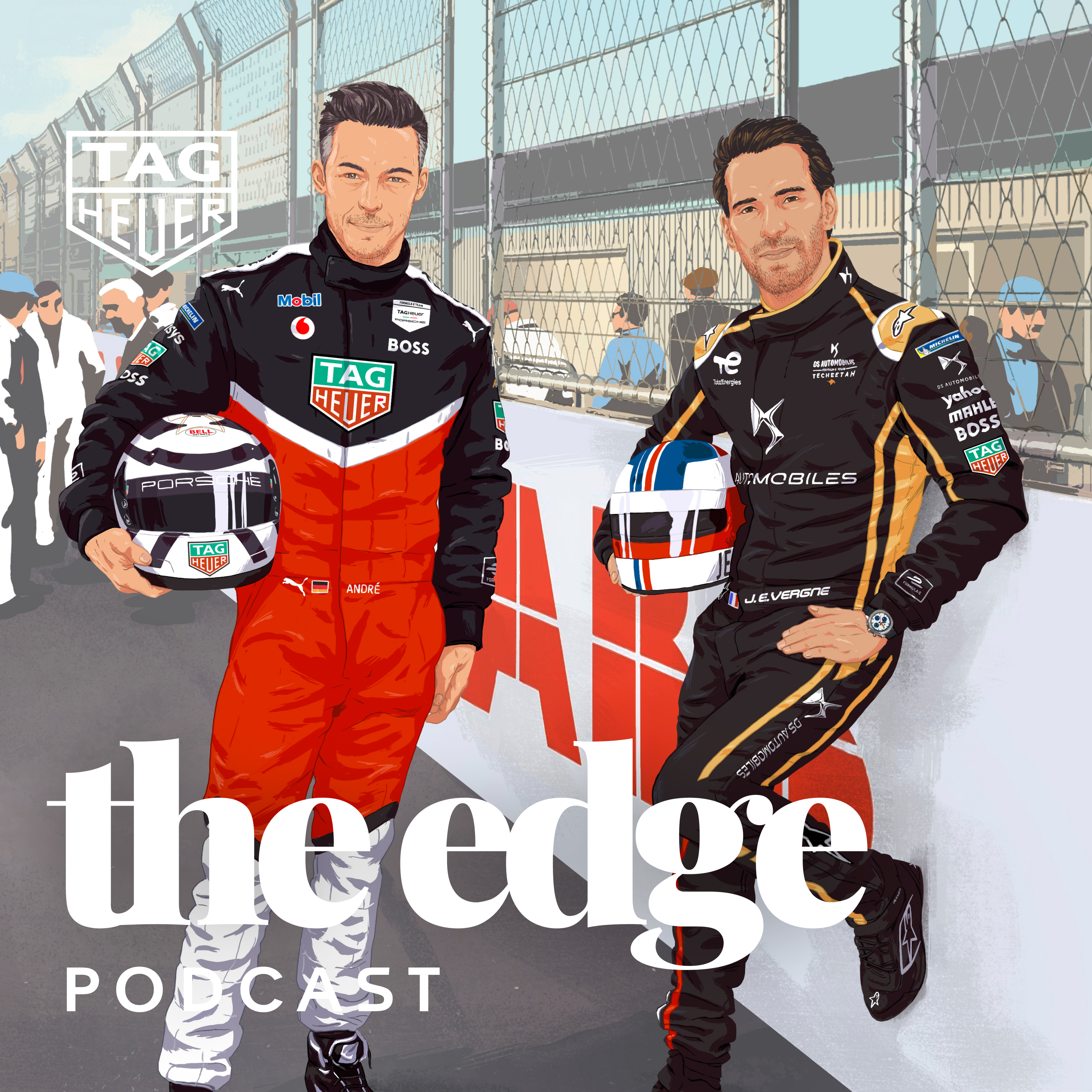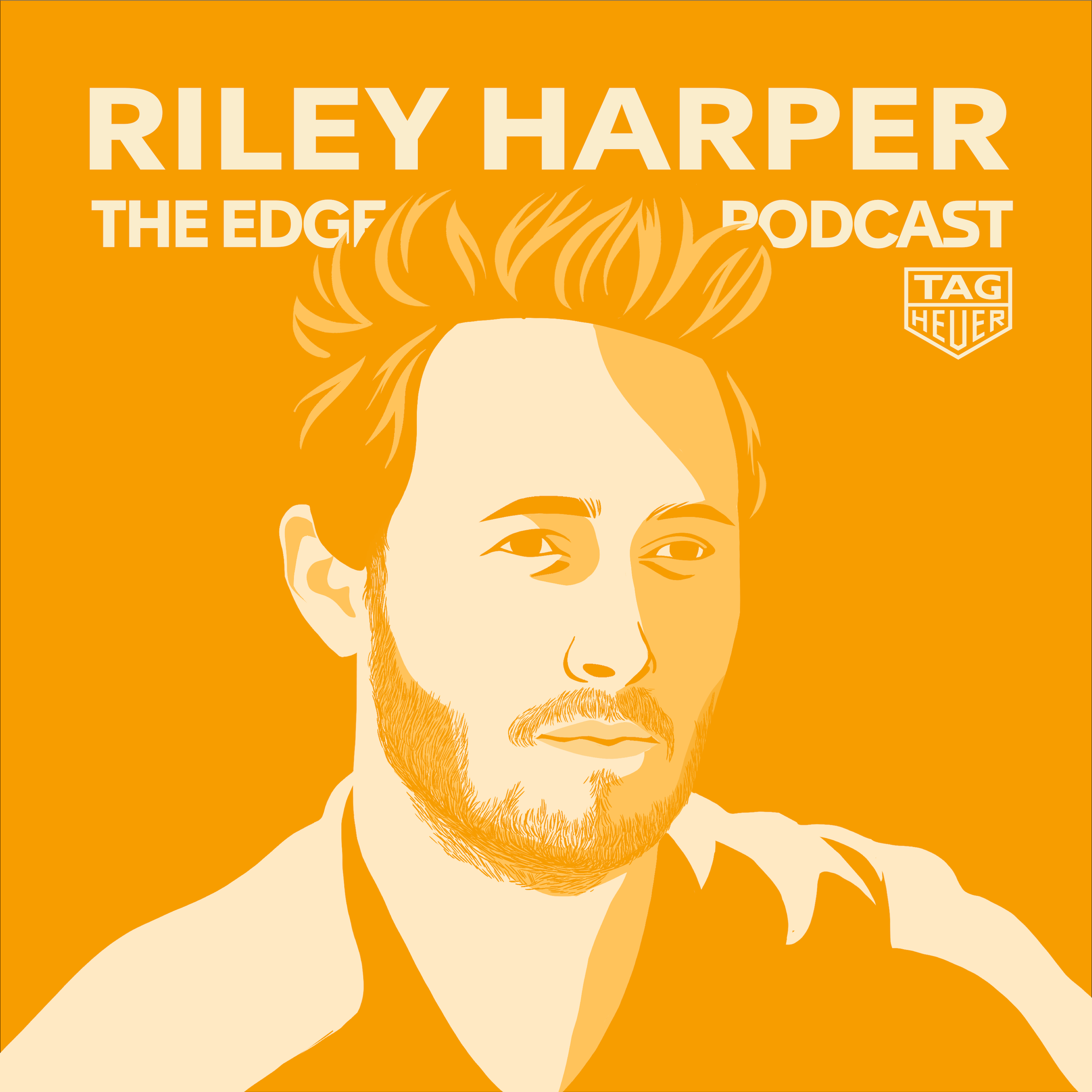Episode Transcript
Speaker 1 00:00:02 Joining us in the driver's seat is Alexander Rossi, the man who took motorsport by storm in 2016. Alexander drove his way into the pages of history when he won the hundredth running of the Indie 500 as a rookie. We spoke to him while he was preparing for the 2023 edition of the Legendary Race. He relives that 2016 win. His surprising fuel strategy moment shaped his career. Alexander also revealed his team's pre-race rituals, which include watching the Monaco Grand Prix, and he shared his hopes for the future with his new team. I'm Te Vanna brca. Welcome to the Edge, A podcast by Tag Hoyer.
Speaker 2 00:00:51 When I say that, I remember two things vividly from that day. One was the morning of, um, because I had never, I was a rookie, so obviously I had never participated, but I had never attended an Indy 500 before. So my world was kind of, was, was blown away by everything that takes place. Um, kind of between the hours of 9:00 AM to noon when, when the race starts. Um, and we're at this facility kind of practicing and qualifying for an entire month leading up to the 500, which is at the end of May. And it's the first time that you actually see the place full of people. And it's, it's the one moment I think in, you know, my life where you felt like you were kind of a, like a rockstar, I guess is the easiest way to put it. You know, there was, there was just so much kind of fanfare and excitement around, you know, you as being one of 33 drivers that were, that were participating that day.
Speaker 2 00:01:50 And um, you know, I've, I've been fortunate enough to, to to race in some amazing events around the world and none of 'em really quite matched the level of the 500. So for me, even if I didn't, you know, if I wasn't the lucky one to win that day, I still would've walked away from my first 500, you know, falling in love with the event and, uh, wanting to come back for more in 2016. You know, I didn't know any better, you know, I just went into it and kind of my only expectation and my only goal was to, to finish the race. You know, it was my first 500 mile race. It was my second race that I was ever gonna do, um, on an oval. And so I went into it probably with a, a lot of, um, naivety and I was pretty relaxed compared to everyone else, just cuz I didn't, I didn't really know the significance of the event.
Speaker 2 00:02:42 Now that, you know, I'm seven going on eight years removed, um, from, from that day, you know, it's hard not to kind of get, I guess, enamored with, with what this race means and, and your desire to win it, right? So you have to treat it like any other race cuz ultimately that's all that it is. It's just another indie car race. Just, there's more people watching, but ultimately everything else is the same. And you have to, to, to perform at your best. You can't really get caught up in the moment, but at the same time, you know, you're, you, you, you have to remind yourself of, of the position that you're in and how fortunate you are to be one of 33 racing drivers in the world that gets to do this race. And so you have to enjoy it still. So it's, it's kind of finding that balance between just going out there and who cares. It's another racetrack with another race car and you just gotta go win to kind of taking in the experience and enjoying it cuz you only, you only get so many of these for me that day. Let's see, um, one of the traditions here is like a bomb goes off at 6:00 AM to signal that, that the gates are opening. So that wakes you up
Speaker 2 00:04:00 And then, you know, you kind of have your coffee, your breakfast, whatever. And then we would always go and watch the MoCo Grand Prix, um, cuz that would be on kind of at the same time that we would be kind of just sitting around doing nothing. So you'd watch that and you'd kind of watch that with your team and teammates and you'd be in the engineering room and there was this like, as every kind of 30 minutes pass, getting closer to race time, like the, everyone got quieter and the anxiety level kind of starts to go up. Um, so the race is just a nice way to, to kind of think about something else. Um, so you'd watch Monaco and then you kind of have your final discussions with your engineers. So the big thing about the day of Indianapolis or or of the Indy 500 is you're trying to choose a a down force level.
Speaker 2 00:04:47 So what that means is because it's noble, um, you know, the, the least amount of down force that you can run and still be full throttle for the entire lap is obviously better because less down force is less drag and, and a faster speed. But the problem is this track, um, because the speeds are so high, is very, very sensitive to wind, um, to wind speed, to wind direction also to, um, the track and the ambient temperature. So you're like trying to predict exactly like what the wind gusts are gonna be in a couple hours and what the, the track temps gonna be. And then you're trying to choose a final down force level you're gonna race with. Um, so that's kind of your, your last big decision that you have to make. And then about an hour and 15 minutes before, um, the, the race starts, you kind of go, all the drivers gather together, um, in basically a green room and you then go out, so in Indy it's 11 rows of three.
Speaker 2 00:05:51 So they start with the last row of three and, and work their way forward. And they do these driver introductions and that's an on the front, straight in front of, you know, I think 130,000 people sit on the front straight. And then they kind of do like a, a group photo. And then it's the first, the first race before the race is everyone. Then there's like, there's two restrooms that like you have access to. So all 33 people like rush to these two restrooms, um, to do what they need to do. And then you kind of make your way back out to the grid. Um, and then that's when kind of all of the pageantry of the 500 starts. So there's a lot of tradition in history, um, that goes into the, the pre-race ceremonies from, you know, the, the local, um, university kind of marching band plays a certain type of song and then someone sings back home in Indiana.
Speaker 2 00:06:43 And then obviously there's the national anthem, which is performed by, you know, some high level performer. There's the flyover, um, with the US Air Force, which is always pretty, pretty phenomenal. Um, and then it's kind of, all of this takes about 30 to 40 minutes. Um, and then it's, it's finally time to, to kind of get to work. So you, you know, you spend so much of your month talking about, okay, what's the race gonna be like, how are you gonna do, like how's it gonna go? And at this moment you can finally kind of put your helmet on and get into the car and you can stop talking about it. Like that's the, it's, for me, it's the best part is you can actually finally just go and, and do your job and get to work. And so then you kind of roll off and you do some parade laps. You, you wave to everyone that's there, um, and, and kind of salute everyone that that showed up. And, and then you start a, a 500 mile race. It's a really cool moment. Um, and like I said, it's, it's kind of the one, the one time in your career where you can feel like, like you're cooler than you actually are. So, uh, it's good to enjoy the moment.
Speaker 2 00:08:04 This race always ends up at some point being a fuel mileage race. And the reason for that is because when you're out front, um, and you're just driving around full throttle, you're burning in a lot of fuel, um, as you would expect, but is if you're the second car line, third car line, fourth car line, the slip stream or, or the draft is so effective, um, that you can be doing the same speed as the leader but only using like 60% throttle, 50, 60% throttle. And so that, um, makes it really, that's why you don't wanna lead this race because what happens is if you, if you led the whole thing and obviously there's yellow flags that come out and, and, and that changes the dynamic of the race, but let's say it was an all green race and you led the entire thing, you would actually have to make an extra pit stop than a guy that was just driving around in second.
Speaker 2 00:08:58 So obviously it's not, it's not quicker. You lose 30, no, I think you lose 48 seconds in pit lane. So it's obviously not quicker to lead the whole time, even though you, you would think you want to, you wanna be in front. So you, your mindset in the race is, okay, well I have a, I have a Chevrolet engine, my fuel efficiency is X versus a Honda that's x I have the ability to be better in these two corners because of whatever reason. Um, so what you try and do is you try and, and and understand the cars that you're racing, what engine they have and like what performance in certain corners that they have. And then you try and, and and make sure that your positioning of the car is in a place that at one point they're going to have to go behind you and you have to be able to capitalize on that. So it's, it's a lot of, of thinking about others, um, which is, which is weird to to say. Um, but yeah, ultimately it's, it's a game where you're just, you're trying to see the entire strategy of the race unfold and, and stay on top of it in the best way you can. I, it, it's hard to explain, but yeah, you're think you're thinking about other drivers more than you are yourself.
Speaker 2 00:10:16 We didn't believe it was gonna work. Um, so the reason we ended up in 2016, you know, doing this crazy fuel strategy is cuz for most of the race I was running around in like eighth to 11th, um, you know, we were a good car but we weren't a car that was, that was gonna win the race and two pit stops in a row. We, we had trouble getting fuel in the car. So twice I went back to like, I fell back to like 25th or 26th in the pit stop sequence cuz we had really slow pit stops. And so, um, my strategist, who was also the, the co-owner on the car, his name is, um, Brian Herda, he decided that, you know what, we are obviously not good at pit stop, so we're just gonna try and skip one. We're just gonna, we're not gonna do one.
Speaker 2 00:11:08 And so what that meant is for like 90 laps, I had to extend my stints by, by pretty significant margins. Um, and so the, the fuel mileage that we had to hit was like 30% higher than than anyone hit really achieved so far that month. And so we, um, we started the final stint knowing that there was going to be a point that we were gonna run outta gas. Like that was, there was no question as to whether or not we were gonna, we were gonna run out gas. It was just, are you gonna run out in the lead? Are you gonna run out with a big enough lead on the last lap? At what point is it actually gonna happen? And so it became clear that we were gonna run out on the final lap, but what are all these other factors? So we started the last lap with a 24 second lead, um, on second place the car ran outta fuel in turn three. So there was still like a mile or something to go. And so all we could do was coast from turn three to the finish line and we ended with a four second lead. So we lost 20 seconds in two and a half miles. So it was, it was about as close as as you could have cut it.
Speaker 2 00:12:36 Everyone there was like, who is this guy? Why did he win? How did he win? And so like no one, no one at all expected us, you know, up until the Friday before qualifying my car didn't even have a sponsor. Like it was just a blank black and white car. Um, and so we were kind of this just unknown rookie car that drove for, I drove for a great team, I drove for Andrei Autosport, we qualified 11th, but still no one paid, no one knew anything. And so when this car crossed the line and no one knew who I was, um, everyone was a little, people were up, I'm gonna be honest, people were upset. People were like, how can this guy who knows nothing about the race, blah, blah, blah, come in here his first time and win and he isn't appreciated and all this stuff.
Speaker 2 00:13:27 And it's like, I now I now looking back on it, kind of understand where people are coming from, right? Because you have these, you have these families who this race is, has, is generational, you know, they, they, some of these people put their tickets in their will to give to their children, right? And then you have these drivers that have been trying to win this race for 10 years, 15 years, 20 years. They've put their entire life and blood and sweat and tears into it and it hasn't, hasn't worked out for them. And then this kid who used to race in Europe kind of really didn't want to be an indie car in the first place, comes in and wins the race. And everyone's like, this is, this is bs. So I understand now kind of people's impression, but my love for this event and my appreciation for this race has changed so much, um, because I won.
Speaker 2 00:14:21 But, but also because it, it is, it is, it is something that that means so much, um, to everyone who's involved. So when I crossed the line, I was, I was stunned, I was surprised. I didn't know what came next. I didn't really know the magnitude of what it meant to win this race. Um, and I had also like just never won an IndyCar race before. So like I didn't know, I didn't know anything. Like I just, the last race that I had won was in Formula two in Europe and that's a whole different scenario. So like everything that, that happens afterwards, like in terms of the celebrations and like, I didn't know, like they give you a wreath when you, when you get outta the car. I didn't know why I didn't, so I didn't know what to do with that. I knew that there was milk, didn't really understand why, like there was so many things that like I just didn't know. So people thought that it's cuz I didn't care, but it was truly just because I had never like watched the race before.
Speaker 2 00:15:21 You know, my goal as a kid was to get to Formula One, you know, I achieved that in 2015, but some, some stuff happened and it was a last minute thing for me to come to IndyCar in 2016. And it was a bit of a risk, you know, just to, to come on a one year deal with no sponsorship and, and kind of just see what, what could happen in that moment. It was, it was a bit of a validation of of, you know, we made the correct decision and that that everything was gonna be okay.
Speaker 4 00:15:47 Amazing. With that in mind, how has the win shaped your career from that point on?
Speaker 2 00:15:54 You know, it, um, it gave me a career in, in IndyCar. You know, I, as I said, you know, I came here on a one year deal. Um, I didn't have a, I didn't have a sponsor at all. Um, and then after that, you know, uh, Napa Auto Parts, who was kind of brought on last minute as kind of a regional sponsorship thing, local to Indiana for one race, then it became a corporate deal with Napa Auto Parts. So a, a, a massive kind of household name here in the States. It allowed me to extend a deal and to, to build a relationship with Napa, with Android Autosport, with Honda. And I drove for them for, for seven years. Um, and, and actually this year's, the first year that, that I've left that group and, and switched to, to McLaren and, and Chevrolet, um, to start a new chapter. But, but you know, I was a, a guy that was only gonna be here for one year and then ended up making a, a seven year run out of it with the same group of people. And, um, we accomplished, uh, a lot of things together. So it was, it was, it, it defined my, my career. It gave me a chance to, you know, start kind of a new career, if you will, in the States in IndyCar. And, um, you know, I'm, I'm very fortunate that, that that was able to happen. Mm-hmm.
Speaker 4 00:17:13 Um, tell us a bit about your move to a new team. How has that change been?
Speaker 2 00:17:17 It's, uh, it's been, it's been amazing, man. Um, you know, I, I left, I left Andrei with, you know, a lot of fond memories, but you know, to be, to be very honest, the the last three years there didn't, didn't meet expectations. Um, you know, we, we went from being a, a championship, you know, contending car and finishing second and third in the championship in 2018 and 19 to our best place in the championship in the subsequent three years was ninth. Um, so it, it, it didn't, it didn't meet expectations. Um, and, and that's okay. You know, sometimes in life things come to an end and it was just time, time for a change. And so I got the opportunity to, to, to drive for McLaren in Indy car to drive for Zach Brown, um, and, and team Chevy. And it's been a, an amazing kind of transition to a team that, you know, has an exponential kind of runway in this sport. You know, they, McLaren came in and kind of took small chunks out of acquiring an existing team. And for 2023, now it's a hundred percent kind of owned and, and operated by, um, McLaren racing. So out of the, it's essentially the McLaren F1 team. So, um, obviously there's a lot of resources and, um, capabilities that come with that. And, you know, we're, we're very happy about what we have going so far and look forward to the future.
Speaker 4 00:18:45 How has it been evolving from a kind of Indy 500 rookie to an Indy 500 regular? Has it changed the way you prepare? Has it changed the way you race?
Speaker 2 00:18:55 I don't know that it's changed how I prepare, um, but certainly, yes, it, it changes how you race, um, this, this place because you're here for so long and you practice so much. Like, it's really easy to get kind of caught up in, I don't know, like the conditions of the day. Like sometimes you'll, you'll be really good on a Wednesday and then you'll come back on a Thursday and everything will go to to hell, and it's really easy to get spun up about like, why that happened, or, oh, now our car's slow, or we need a new this or that, or it, you can't, you, you just gotta like, okay, well we're 25th today and that's fine. Like, we know that the car is fine, no one forgot what they're doing mm-hmm. <affirmative>, and you just kind of have to, to go with the, the peaks and valleys of being here for so long. You know, most tracks that we go to, you're in and out and kind of under three days. So just being relaxed in the good and bad that, that come with the Indy 500 is, is probably what I've learned the most. Mm-hmm.
Speaker 4 00:20:03 <affirmative>, finally, what advice would you give to any other young racing drivers out there?
Speaker 2 00:20:08 The advice that I would give is you're, it's good to have a, it's good to have a plan, but you have to be okay when that plan doesn't, doesn't go the way that you want. And, um, you know, I, I'm a perfect example of that. You know, I, I went to Europe at 17, I was there for almost eight years. I finally, you know, achieved my goal of, of making my Formula one debut in 2015. I had a contract to, to be a, a full-time driver, um, in F1 in 2016. And in a span of three weeks that all changed. And I was on a plane to, from, from London to Indiana and got the opportunity to drive an indie car because Andrei Autosport was expanding to four cars. They heard that I was essentially out of a job and, um, 10 weeks later, 1 9500.
Speaker 2 00:21:09 And it obviously not all things in life work out that way, but so many times in my career, you know, I thought that this, this certain thing didn't happen by the time that I wanted it to happen. So now we're screwed. And it's not the case. It's, it's like anything in life, you have to be able to understand that, you know, there's opportunities everywhere that you look and you just have to take advantage of every single time that you get the opportunity to drive a race car. Um, and as long as you enjoy that experience and you try and perform to, to your best level, um, you know, ultimately it'll probably, it'll probably work out in some way or another. So that's the advice I'd give is it's great to have this vision and the goal of I want to be racing here in, in six years, but if that doesn't happen, that doesn't mean you stop you, you just have to keep going. Um,
Speaker 4 00:21:56 I said finally, I've actually got one more question, but I'd love to know where your original love of racing came from. Like where did that drive and passion originate from?
Speaker 2 00:22:06 My original love of racing really came, it came from my parents. You know, they, they didn't have a racing background, but both my, my mother and father were just F1 fans. And so I was that one of those weird families that, you know, at 4:35 AM on Sunday mornings, we would go downstairs and watch F1 races in, in, in Northern California. Like that was just kind of what we did. And so, um, that was kind of my introduction. And then when I was 10 years old, um, my father got me a, like a three day go-kart school that this was supposed to be like just a once in a lifetime opportunity, you know, it's a birthday gift type thing. And, and then after that, you know, I, I obviously I loved it and just kept pestering my parents and was fortunate enough to, to have their support. I was an only child. Um, so they kind of were able to let me do what I wanted to do with, with no distractions. And, um, here we are, as you know, two decades later. Fantastic.
Speaker 4 00:23:07 Alexander Rossi, thank you so much for joining me at the Edge. It's been wonderful having you and, uh, good luck with everything in the future.
Speaker 2 00:23:13 Yeah, thank you. I appreciate you guys.
Speaker 1 00:23:21 Thank you for listening to this episode of The Edge. If you'd like to listen to more episodes like this one, have a listen to our interviews with Racing drivers Max for Chapin, Sergio Perez and Simona Desel. Vero. If you enjoyed this episode, don't forget to subscribe and leave us five stars. It does make a difference. Thank you so much to Alexander Rossi for joining us. I'm your host, Teo Van Naka, and I'll be back next month with another episode of The Edge, a podcast by Tag Hoyer. See you soon.
